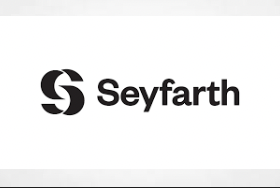Once upon a time in the Eastern District of New York, a cryptocurrency foundation, new owners of the sole copy of Wu-Tang Clan’s “Once Upon a Time in Shaolin,” filed suit against the album’s former purchaser, Martin Shkreli, accusing him of wrongfully retaining copies of album data with the intent to publicly release it. The dispute has proved contentious, with the Court now set to weigh a motion against Shkreli for contempt.
Plaintiff PleasrDAO is a crypto foundation focused on digital art. Defendant Shkreli is a former pharmaceutical executive who made headlines after price-gouging an anti-parasitic medication and being unrelatedly sentenced to seven years in prison for securities fraud.
“Once Upon a Time” is Wu-Tang’s seventh studio album. Only one copy was made, consisting of thirty-one songs on two CDs, kept in a jeweled silver box with leather-bound notes, customized audio speakers, and a gold-leafed certificate of authenticity. Wu-Tang’s RZA and producer Cilvaringz intentionally sought to treat the album like fine art, with a value maintained by its exclusivity. As a result, it was recorded in secret, stored in a vault, and made subject to various intellectual property protections.
In 2015, Shkreli purchased “Once Upon a Time” for $2,000,000, rendering the album the most expensive work of music ever sold. Consistent with Wu-Tang’s intentions for the album, Shkreli’s purchase agreement prohibited duplication or public release of the album until the year 2103.
After his sentencing for fraud in 2018, Shkreli faced a $7,360,450 forfeiture money judgment. He was ordered to forfeit his interests in valuable assets, including “Once Upon a Time,” to satisfy the judgment amount. The order also restrained Shkreli from taking any action that would diminish the value or marketability of the assets.
From 2021 to 2024, PleasrDAO paid the equivalent of $4,750,000 to become the album’s new owner.
In 2022, Shkreli was released early from federal prison to begin a three-year term of supervised release, which mandated his compliance with the forfeiture order. Nonetheless, just a month out of prison, he played the album during a social media livestream and admitted he had retained copies of the album, stating, “I’m not stupid. I don’t buy something for two million dollars just so I can keep one copy.” Shkreli also taunted PleasrDAO over a flurry of posts to X (formerly Twitter), one of which read: “well @pleasrdao blocked me from their account so I think I will play the album on spaces now.” Shkreli then hosted a “Spaces” session on his X account, livestreaming the album to nearly 5,000 listeners.
The Complaint seeks to enforce the forfeiture order and accuses Shkreli of misappropriation of trade secrets, tortious interference with prospective economic advantage, and unjust enrichment. From the outset, Shkreli faced litigation losses, with PleasrDAO successfully moving for a temporary restraining order and, later, a preliminary injunction. The August 26, 2024 preliminary injunction order required Shkreli to provide a sworn affidavit stating he had turned over copies of the album to his attorneys as well as an inventory of the copies retained, contact information of the individuals to whom Shkreli distributed the data, and an accounting of any proceeds Shkreli made from his distribution or playing of the album.
Shkreli filed a declaration of his purported compliance at the end of August, but shortly thereafter, PleasrDAO argued Shkreli’s filing fell short and asked that the Court utilize its contempt powers to intervene. Specifically, PleasrDAO highlighted Shkreli’s admission that additional copies may “possibl[y]” be in storage, his statement that he had only turned over audio files of a specific format, and his attestation that he had turned over “15 tracks” to his attorneys, when the album contains 31 tracks. The Court directed Shkreli to file a supplemental affidavit clarifying the disparity as to the number of tracks and scheduled a hearing “to resolve the deficiencies in Defendant Shkreli’s affidavits.”
The Court is set to hear the parties’ arguments on November 20, 2024. Given the case’s history thus far, the odds do not appear in Shkreli’s favor. In fact, particularly in light of his shenanigans regarding the album’s secrecy, Shkreli’s failure to craft an affidavit of compliance with surgical precision may well come back to haunt him. As it progresses, the case will prove an informative example of a trade secret dispute where the defendant admits wrongdoing, at least in part. Fortunately for Shkreli, litigation is temporary, even if Wu-Tang is forever.
Source: JD Supra
https://www.jdsupra.com/legalnews/cryptocurrency-collective-files-trade-9096836/




